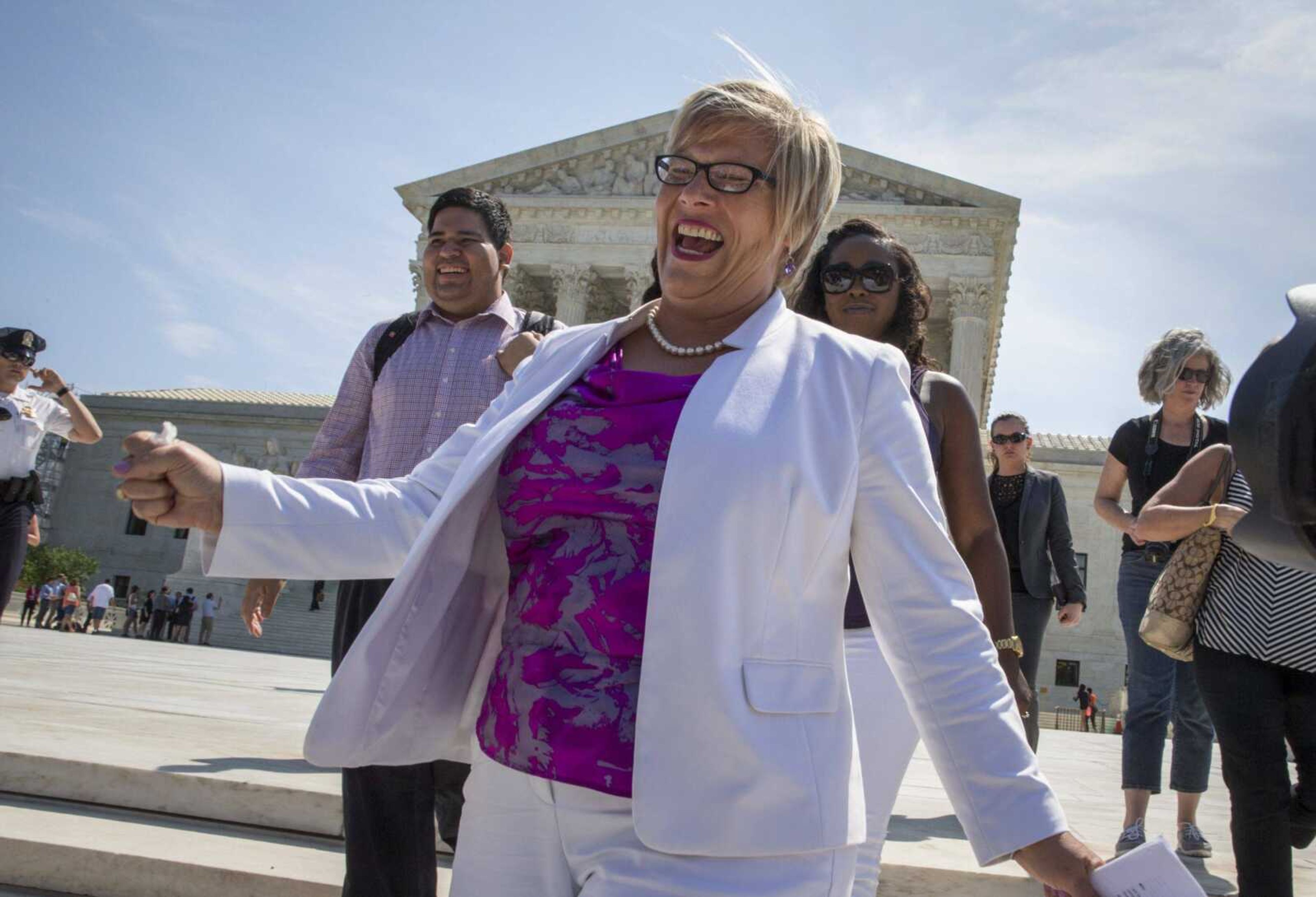WASHINGTON -- The Supreme Court issued its strongest defense of abortion rights in a quarter-century Monday, striking down Texas' widely replicated rules that sharply reduced abortion clinics in the nation's second-most-populous state.
By a 5-3 vote, the justices rejected the state's arguments its 2013 law and follow-up regulations were needed to protect women's health.
The rules required doctors who perform abortions to have admitting privileges at nearby hospitals and forced clinics to meet hospital-like standards for outpatient surgery.
The clinics that challenged the law argued it was a veiled attempt to make it harder for women to get abortions by forcing the closing of more than half the roughly 40 clinics that operated before the law took effect.
Justice Stephen Breyer's majority opinion for the court held the regulations are medically unnecessary and unconstitutionally limit women's right to abortions.
Breyer wrote "the surgical-center requirement, like the admitting-privileges requirement, provides few, if any, health benefits for women, poses a substantial obstacle to women seeking abortions and constitutes an 'undue burden' on their constitutional right to do so."
Thirteen states, including Missouri, have similar requirements, enacted as part of a wave of abortion restrictions states have imposed in recent years.
Others include limits on when in a pregnancy abortions may be performed and the use of drugs that induce abortions without surgical intervention.
Amy Hagstrom Miller, the owner of several Texas clinics among her eight facilities in five states, predicted the decision would "put a stop to this trend of copycat legislation."
Texas Attorney General Ken Paxton said the law "was an effort to improve minimum safety standards and ensure capable care for Texas women. It's exceedingly unfortunate that the court has taken the ability to protect women's health out of the hands of Texas citizens and their duly elected representatives."
Justices Anthony Kennedy, Ruth Bader Ginsburg, Sonia Sotomayor and Elena Kagan joined Breyer's majority.
Ginsburg wrote a short opinion noting laws such as Texas' "that do little or nothing for health, but rather strew impediments to abortion, cannot survive judicial inspection" under the court's earlier abortion-rights decisions. She pointed specifically to Roe v. Wade in 1973 and Planned Parenthood v. Casey in 1992, of which Kennedy was one of three authors.
Chief Justice John Roberts and Justices Samuel Alito and Clarence Thomas dissented.
Thomas wrote the decision "exemplifies the court's troubling tendency 'to bend the rules when any effort to limit abortion, or even to speak in opposition to abortion, is at issue."' Thomas was quoting an earlier abortion dissent from Justice Antonin Scalia, who died in February. Scalia has not been replaced yet, so only eight justices voted.
In other rulings Monday:
- The court upheld the broad reach of a federal law that bars people with misdemeanor domestic-violence convictions from owning guns.
- The court unanimously overturned the bribery conviction of former Virginia governor Bob McDonnell. He had been found guilty in 2014 of accepting more than $165,000 in gifts and loans from a wealthy businessman in exchange for promoting a dietary supplement. The court voted to narrow the scope of a law that bars public officials from taking gifts in exchange for "official action," saying it does not cover routine courtesies such as setting up meetings or hosting events for constituents.
Connect with the Southeast Missourian Newsroom:
For corrections to this story or other insights for the editor, click here. To submit a letter to the editor, click here. To learn about the Southeast Missourian’s AI Policy, click here.







